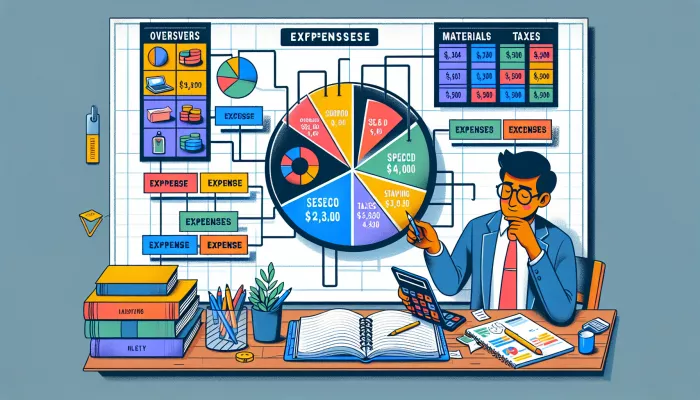

One of the first steps To organize your finances as a freelancer is to create an emergency fund.
This fund should cover between three to six months of expenses, providing a safety net for periods of uncertain income or unexpected emergencies.
To adopt financial management tools can simplify the way you track your inflows and outflows.
Apps like QuickBooks, Wave, It is Mint allow you to have a clear view of your financial health, making it easier to make informed decisions.
Create one monthly budget is essential to managing your finances. Track your income and expenses regularly to ensure that you are not spending more than you should.
This also helps you identify areas where you can cut costs or increase your income.
As a freelancer, it is crucial anticipate and plan for taxes.
Consider setting aside a portion of each paycheck to cover your income taxes and social security contributions to avoid surprises at the end of the tax year.
Improve your financial education is a vital strategy for any freelancer.
Understanding basic concepts of investing, economics, and risk management can significantly improve the way you manage your money in the long run.
Keep personal and business expenses separate is crucial to efficiently manage finances.
Commingling your finances can not only complicate accounting and tax planning, but it can also negatively impact your business’s financial health and your own.
Here are practical strategies to help you separate these expenses:
One of the most effective ways to separate your expenses is have separate bank accounts for your personal and business finances.
This makes it easier to track expenses, manage cash flow, and prepare financial reports.
Just like bank accounts, having separate credit cards for personal and business expenses can help keep expenses organized.
This makes it easier to identify business expenses when filing taxes.
The use of financial management software, such as QuickBooks, FreshBooks or Xero, can significantly help in separating and tracking personal and business expenses.
These apps offer features to automatically categorize expenses, making it easier to see what was spent in each area.
Pay yourself a fixed salary of the business is an effective strategy to separate finances.
Decide on a monthly amount that covers your personal expenses and transfer that amount from the company account to your personal account regularly.
Keeping a detailed record of all transactions, including receipts for business and personal expenses, is vital.
This not only simplifies the separation of expenses but is also important for accounting and tax planning.
To do regular financial reviews will help ensure that all expenses are properly classified.
Take time periodically to review your bank transactions and correct any errors in the separation of expenses.
By implementing these strategies, you can keep your personal and business finances clearly separate, improving financial management and tax efficiency.
Managing finances is a constant challenge for many, especially when it comes to efficiently classifying and tracking expenses.
However, adopting some strategies can simplify this process. Here's how.
Keep your accounting organized by dividing expenses into categories.
Use tags as Housing, Food, Transport, Leisure, among others. This not only makes it easier to see where the money is going, but also helps in analyzing possible cuts.
Technology is an ally when it comes to financial management.
Apps like Quicken, Mint It is YNAB (You Need A Budget) are great options for keeping track of your expenses.
Offering features such as automatic categorization, bill reminders, and graphical analysis of your finances.
Setting a monthly budget gives you a clear view of your finances and helps you prioritize expenses. Start by setting a limit for each expense category.
Remember to review and adjust these limits periodically as needed.
Keep a detailed record of all expenses is crucial.
To make this task less tedious, consider using financial tracking apps that allow you to enter expenses quickly and on the go, ensuring that no cash outflow goes unnoticed.
Useful links:
Set aside time at least once a month to review your expenses.
This allows you to identify patterns, recognize areas of excess, and make informed decisions about budget cuts or reallocations.
Adopting these strategies not only makes it easier to manage expenses, but also contributes to long-term financial health.
Getting started can be the biggest challenge, but once you establish and maintain these habits, you'll find that managing your finances becomes significantly easier.